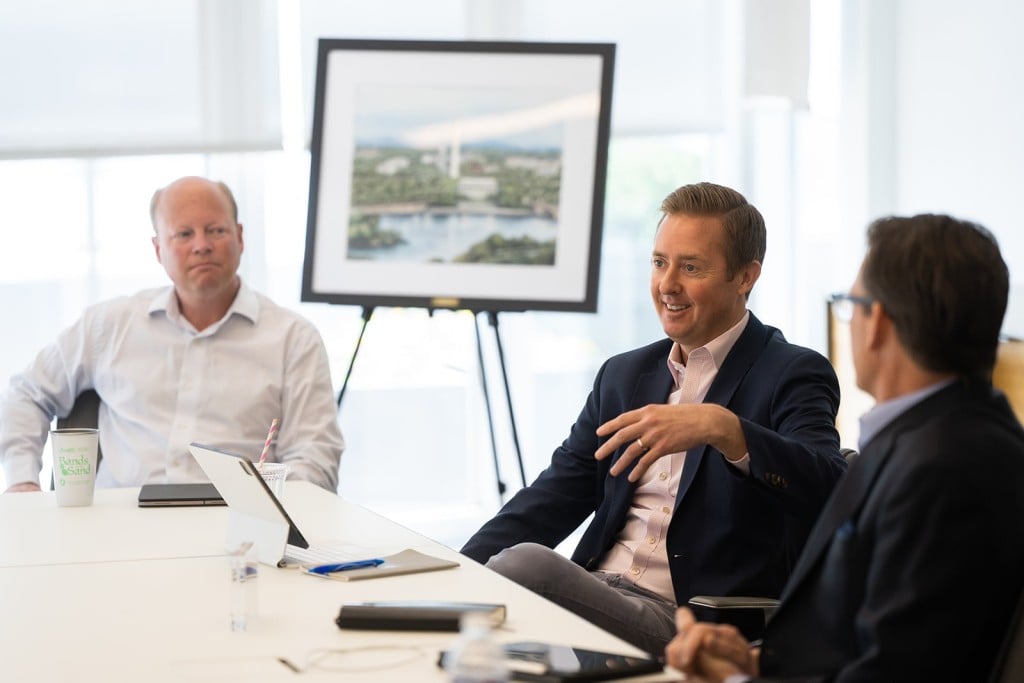Related Articles
Stay Up To Date
Something has gone wrong, check that all fields have been filled in correctly. If you have adblock, disable it.
The form was sent successfully
With companies such as Meta Platforms and Microsoft already seeing strong returns, the race to scale compute power is shaping the future of digital dominance. In a recent conversation, Sr. Director, Client Relations Kevin G. Murphy, CFA, and Portfolio Manager and Sr. Research Analyst Daniel Pilling discussed the resilience of artificial intelligence (AI) infrastructure investments.
Transcript
Kevin Murphy: The hyperscalers and the chip manufacturers and chip vendors have been making massive capital investments to expand their capacity. Are those risky investments? Or do you see an ROI [return on investment] that makes sense for those kinds of investments?
Daniel Pilling: Yes. The biggest spenders on AI chips are companies like Meta Platforms, Alphabet, Amazon, and Microsoft. There’s a few more—Oracle too. Those are the biggest ones.
If we take the first two I mentioned, Meta and Alphabet, it’s actually been pretty great for them. If I look at Alphabet—sorry, if I look at Meta and see what they’ve done, they basically said, I have hundreds of millions of people on my platform, but I don’t have the compute to decide what do these people really want, based off of their interactions on my platform.
And then, lo and behold, AI comes, turns up, and you can sort of create an LLM [large language model] that is smart enough to look at all the data and say, Kevin likes X, Y, and Z, but he doesn’t even know it yet. And then I will show Kevin this ad, and he’s going to click on it. And whoever the company is that wants me to sell something, I can connect that company much better now with whoever is going to buy this, and that’s an amazing capability for them.
May not be the best thing for humanity. But at least, if you think about the use case here, Meta has really monetized that. And I can make a similar argument for Alphabet. It’s again sort of this matching problem of ad versus who buys stuff.
Then if you look at Microsoft, I mean, they have this product called Copilot, right? They obviously have hundreds of millions of people on Microsoft Office, which means again for them it’s an upsell, and sooner or later people will be paying for this. For all these players, it actually worked out quite well. And for Amazon, it’s more of a, I buy the chip and resell it, and I actually get pretty decent ROI on that too. Right? At the beginning of all of this, the payback period for a hyperscaler buying an AI chip was probably less than a year. Now it’s likely a little bit more than a year because I know prices came down, but it’s been great for them. All of these companies have done really well. And I’d say, lastly, as you know, there’s a lot of progress being made in these models—both as we discussed on the training side, but also on the inference side—and the chips are getting better. You can sort of pretty clearly plot a path of saying, whatever happens next is probably going to be much better than what happened in the past 12 months because compute is going up, algorithmic efficiency is going up.
For all these companies, it’s a little bit also a question of, do I want to survive or not? What if my peer has that and I do not? Am I going to miss the big, big boat here? Am I going to miss the party?
I would argue that this AI investment theme on the infrastructure side is very resilient. I think it’s also resilient probably to any recessions-type of things—within reason, obviously. And I actually think the ROI has been pretty good for most of them.
Disclosures:
The views expressed are the opinion of Sands Capital and are not intended as a forecast, a guarantee of future results, investment recommendations, or an offer to buy or sell any securities.
The views expressed were current as of the date indicated and are subject to change. This material may contain forward-looking statements, which are subject to uncertainty and contingencies outside of Sands Capital’s control. Readers should not place undue reliance upon these forward-looking statements. All investments are subject to market risk, including the possible loss of principal. There is no guarantee that Sands Capital will meet its stated goals. Past performance is not indicative of future results. A company’s fundamentals or earnings growth is no guarantee that its share price will increase.
Differences in account size, timing of transactions, and market conditions prevailing at the time of investment may lead to different results, and clients may lose money.
Unless otherwise noted, the companies identified represent a subset of current holdings in Sands Capital portfolios and were selected on an objective basis to reflect holdings enabling or potentially benefitting from the adoption of generative artificial intelligence.
As of June 17, 2025, Sands Capital strategies hold positions in Alphabet, Amazon, Meta Platforms, and Microsoft.
Any holdings outside of the portfolio that were mentioned are for illustrative purposes only.
The specific securities identified and described do not represent all of the securities purchased, sold, or recommended for advisory clients. There is no assurance that any securities discussed will remain in the portfolio or that securities sold have not been repurchased. You should not assume that any investment is or will be profitable.
GIPS Reports found here.
References to “we,” “us,” “our,” and “Sands Capital” refer collectively to Sands Capital Management, LLC, which provides investment advisory services with respect to Sands Capital’s public market investment strategies, and Sands Capital Alternatives, LLC, which provides investment advisory services with respect to Sands Capital’s private market investment strategies, including the Global Innovation strategy, which is available only to qualified investors. As the context requires, the term “Sands Capital” may refer to such entities individually or collectively. As of October 1, 2021, the firm was redefined to be the combination of Sands Capital Management and Sands Capital Alternatives. The two investment advisers are combined to be one firm and are doing business as Sands Capital. Sands Capital operates as a distinct business organization, retains discretion over the assets between the two registered investment advisers, and has autonomy over the total investment decision-making process.
Information contained herein may be based on, or derived from, information provided by third parties. The accuracy of such information has not been independently verified and cannot be guaranteed. The information in this document speaks as of the date of this document or such earlier date as set out herein or as the context may require and may be subject to updating, completion, revision, and amendment. There will be no obligation to update any of the information or correct any inaccuracies contained herein.















